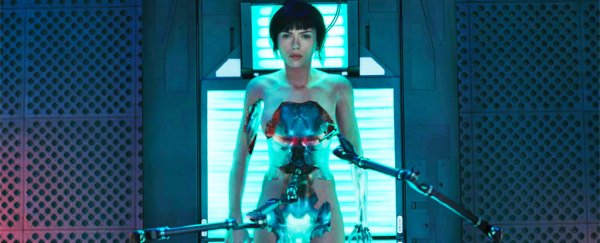As society becomes increasingly automated by robots and artificial intelligence systems, one of the ways forward for humanity will be to physically merge with machines, Elon Musk said this week.
In comments made at the World Government Summit in Dubai on Monday, the billionaire entrepreneur behind Tesla and SpaceX said the kind of daily dependence we already have on personal technology will only increase as time goes on – to the point where human intelligence and machine thinking effectively become one.
"To some degree we are already a cyborg – you think of all the digital tools that you have – your phone, your computer," Musk told the crowd.
"The applications that you have. The fact that you can ask a question and instantly get an answer from Google and other things."
Calling this existing dependence on personal technology a "digital tertiary layer", Musk said it's effectively already part of our neural biology, affecting the way we think, but also with the ability to outlive our physical selves.
"Think of the limbic system — the animal brain and the cortex as the thinking part of the brain, and your digital self as a third layer," he said. "If you die, your digital ghost is still around. All of their emails, and social media – that still lives if they die."
While it's easy to see the logic in this, the more 'out there' part of Musk's vision is how humanity will evolve in the future – especially in a world where robots can perform many of the jobs human currently do, and even outperform us.
In that kind of a world, where huge numbers of unemployed workers subsist on a universal basic income, how will people find satisfaction?
Musk's answer is that humans will deepen our ties with technology even further, to the point where we become cyborgs, as a way of upgrading our inherent natural abilities.
"Over time we will see a closer merger of biological intelligence and digital intelligence. It is all about the bandwidth of the brain," he said.
"Some high-bandwidth interface to the brain will be something which helps achieve symbiosis between human and machine intelligence, which solves a control and usefulness problem."
It's not the first time Musk has talked along these lines.
Last year, he spoke about the need for humans to consider getting brain implants in the future to keep up with the rapid evolution of AI – a technology Musk fears could become dangerous to the world if it isn't tightly controlled.
He's also been known to share some other, shall we say interesting observations about life as we know it.
This is the guy who says it's not impossible – and maybe even likely – that the physical Universe we perceive is a giant simulation being run by an alien civilisation more advanced than our own, with Musk calculating that "the odds that we're in base reality is one in billions".
He's also suggested that we nuke Mars to make it habitable – but we might want to hold off on that for now, since newer developments with SpaceX rockets could have us making return trips to the Red Planet in less than 10 years.
Of course, as much as we love the idea of augmenting our biological selves with cybernetic enhancements that give us all kinds of new abilities, Musk's visions of tomorrow's Earth have their problems too.
In a future world where it's illegal to drive cars because self-driving vehicles are so much safer, and there aren't any jobs or even household chores to occupy us, making a fresh start on Mars doesn't actually sound like such a bad idea.
One ticket, please.
